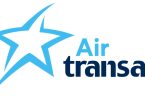The European Tourism Manifesto Alliance, the voice of the European travel and tourism sector, calls on the Member States to urgently agree on harmonized travel restrictions and ensure swift implementation to help the sector survive this unprecedented crisis.
The European Tourism Manifesto alliance applauds renewed efforts of the European Commission as well as the initiative from the German Presidency of the Council of the European Union from last week to improve coordination on cross-border travel and restore the integrity of the Schengen area. The need for continued COVID-19 control is foreseeable and, under Art.24 of the Schengen Borders Code, any related border restrictions must be coordinated. In the wake of an expected dramatic economic downturn, it is crucial that travel within the EU and the wider European area (including EEA, UK and Switzerland) be carefully and quickly restored. In addition, international coordination to re-establish transatlantic travel would provide a vital boost to the travel and tourism sector.
European travel and tourism is the ecosystem most affected by the coronavirus crisis due to insufficiently coordinated travel restrictions, declining traveler confidence, and reduced consumer demand. The 2020 summer season was strongly impacted by this crisis, with traveler confidence reaching a record low. Hotel occupancy rates in Europe were at 26.5% in July 2020, which accounts for a fall of 66.4% compared to the same month last year Moreover, top 5 European destinations, such as France, Germany, the UK, and the Netherlands only saw just 40% of 2019’s volumes for intra-European travel, with Spain lagging at 22% of last year’s volumes.
While many Europeans were keen to travel again during the summer, the inconsistent and ever-changing border restrictions along with confusion about quarantine and test requirements, caused frustration for both businesses and travellers, deterring booking and damaging materialisation for both leisure and business travel.
We call on national governments to urgently approve the European Commission’s proposal and to:
- Establish common criteria and thresholds for determining epidemiological risk, including a common color-coding system to identify risk areas. These criteria should be evaluated on a detailed regional level, considering relevant geographical factors (particularly islands).
- Implement common measures to put in place upon departure to and return from risk areas. These measures should be determined with sufficient detail and based on scientific evidence (as there is no reason to restrict travel to entire countries if only certain regions are affected), and comprise:
- Replacing the need for quarantine of travellers with comprehensive cost-effective testing and tracing
- Avoiding blanket restrictions to free movement by implementing more targeted measures which are limited in geographical scope
- Avoiding imposing travel restrictions on passengers in transit
- Agreeing on common rules for requesting pre-travel COVID-19 negative test results where needed
- Ensuring the interoperability of contact tracing apps in the EU and the harmonization of Passenger Locator Forms based on international standards.
- Follow a common structured and transparent process to publish clear, comprehensive, and timely information about any travel restrictions where these are needed. Information should also be made available on the ‘Re-open EU’ web platform
The sector has been calling for better coordination between the Member States and a harmonized European approach to travel restrictions and safety measures since the start of the COVID-19 pandemic. Such an approach will help rebuild traveler confidence and help the sector in its slow recovery, protecting millions of livelihoods, jobs, and enterprises. Pending the return of significant visitor flows, continued financial support for the sector is necessary so that the European tourism ecosystem returns employment to the economy as soon as possible.
Proving the importance of tourism recovery as a catalyst for European economic revival, the latest WTTC research shows that every 2.7% increase in travel flows would generate or bring back one million jobs in the sector. Harmonizing the inconsistent patchwork of COVID-19 rules and travel advice in Europe could lead to an increase in travelers by as much as 27%, recreating 10 million jobs in travel and tourism across Europe.























